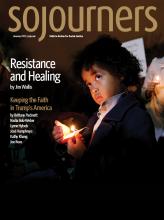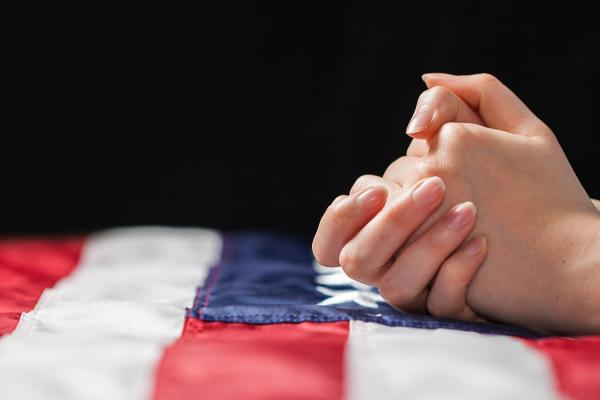AFTER A LONG and extraordinarily toxic election, white people elected Donald Trump president of the United States. They weren’t the only ones voting, but the white vote—coupled with efforts to suppress minority voters along with diminished enthusiasm and turnout among all voters—was enough to make the difference. After beginning his political career with a racist birther campaign against the first black president, then starting his presidential campaign with a speech that viciously denigrated Mexicans and immigrants, Donald Trump won the election not in spite of but because of his bigotry.
One of the important moral discussions that will take place over the coming months is around the questions “Who did evangelicals vote for in 2016, and why?” White evangelicals overwhelmingly supported Trump, but evangelicals of color did not. In light of these results, we need to step back and ask much-more-basic questions, such as “What is an evangelical?” “What do evangelicals look like?” and “What issues motivate evangelical voters?” The answers are more complicated and more encouraging than what the media and pollsters have traditionally described and what the votes of white evangelicals in this election painfully showed.
In 2016, the conversation about who evangelicals are and what issues motivate them began to change. An influential declaration signed by 80 racially diverse evangelical leaders focused on their rejection of the racial and gender bigotry of Trump. It clarified the fundamental differences between older white evangelicals and a new generation of multiethnic evangelical leaders and what they care about.
One sign of progress is that when the media discuss religious voting preferences, they are now more likely to use the phrase “white evangelicals” as a category rather than assuming that the term “evangelicals” applies only to white people.
Read the Full Article

